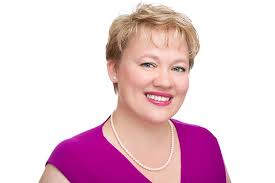Do you see yourself as an expert? Maybe you can admit you’re good at something or you’ve completed enough training to master a skill, but you still hesitate to call yourself an expert. Maybe you aren’t even sure what your expertise would be.
The good news is, you’re probably already an expert in something — you just need to uncover it.
Recognizing your own brilliance is hard, but once you find it, you can monetize it. People want to buy from someone they think is an expert. Colleagues are also more likely to refer you if they know your area of expertise.
Do others see you as an expert?
Maybe you see yourself as an expert, but you’re not sure if anyone else does. How do you know if your expertise is well-defined among your friends and colleagues? Here’s one way to find out.
 The last few times someone else described what you did, what did they say? If your peers usually refer to you as a jack-of-all-trades, they’re probably confused about what you do.
The last few times someone else described what you did, what did they say? If your peers usually refer to you as a jack-of-all-trades, they’re probably confused about what you do.
If you’re in a networking or Facebook group and someone is looking for a service matching what you do, do your colleagues refer you or tag you?
When your friends’ descriptions of your work don’t match up with your expertise and you’re not getting referrals from colleagues, there’s a disconnect. You haven’t clearly defined your expertise.
By asking how you see yourself and how others see you, you can determine how your expertise is delivered to the world. You will also gain valuable insights into monetizing your expertise.
If you’re struggling to uncover your expertise, or just narrow down your focus, here are three questions to get you started:
Question 1: What comes easy?
If you had to replace your business and start over from scratch, what would you do first? Where would be the easiest place to start?
Whatever you choose probably comes naturally to you — and you could be undervaluing it.
Even if a topic seems simple to you, it’s not simple to everyone. There are people who struggle with the things you’re good at and they’ll pay someone to teach them how to do it (or do it for them).
The no-brainer task you can do in your sleep might actually be the quickest to monetize. Don’t neglect what’s easiest for you.
Question 2: The 30-minute presentation experiment
You just found out you have to give a 30-minute presentation right now.

No notes, no preparation, just speaking to an audience for half an hour. What topic would you choose? (If this question leaves you shaking in your boots, change the modality: you’ve been asked to write a five-page article with no research, or write a song, etc.)
The topic you choose is probably something you’re really passionate about. You know it inside and out, can talk (or write) about it in depth and can answer questions about it.
The topic you know most about defines your expertise. So ask yourself, “What do you want to tell the world?”
Question 3: What are people asking you?
What do people want from you right now?
If your friends and colleagues often follow up with you about a certain topic or ask for your help, pay attention.
Make sure it’s something you actually want to deliver, of course. You may be bombarded with questions about a previous career, but you’ve since changed course. Keep this exercise focused on your current business.
Within your current business, what’s one thing people keep asking you about? You might not think it’s of much value, and it might be a little different than what you’re currently offering, but your audience might be willing to pay for it.
Know it, monetize it, own it
Once you know your expertise you can monetize it. But what about owning it?
Owning your expertise means truly accepting it in your soul and shouting it from the rooftops. When people call you an expert, you no longer cringe, hesitate or rationalize.
 For some people, owning their expertise is a natural step before monetizing. Others need the confidence boost of a successful monetization before they can fully own it — and that’s ok!
For some people, owning their expertise is a natural step before monetizing. Others need the confidence boost of a successful monetization before they can fully own it — and that’s ok!
When you can demonstrate other people are willing to pay for your expertise, you have all the proof you need. At this point, owning it will naturally fall into place.
One of the quickest and easiest ways to monetize your expertise is to create an online program. Successful online programs position you as an expert to your audience faster than anything else.
An online program is also a simple, inexpensive way to test and validate your idea to determine if it’s viable. You’ll quickly learn if people are willing to pay for your idea.
If people don’t pay for your online program, it’s a sign you might need to tweak your area of expertise, talk about it differently or even offer something else.
If they do pay, your confidence will skyrocket as you watch people buy something you created, and hear you’ve made an impact in their lives.
When you create a program with a hot topic idea, leveraging your knowledge and showcasing your expertise, you’ll be on the path to owning your expertise.
The views and opinions expressed are those of the guest author and do not necessarily reflect the views and opinions of MindShift.money.
image credit: Bigstock/snowing

